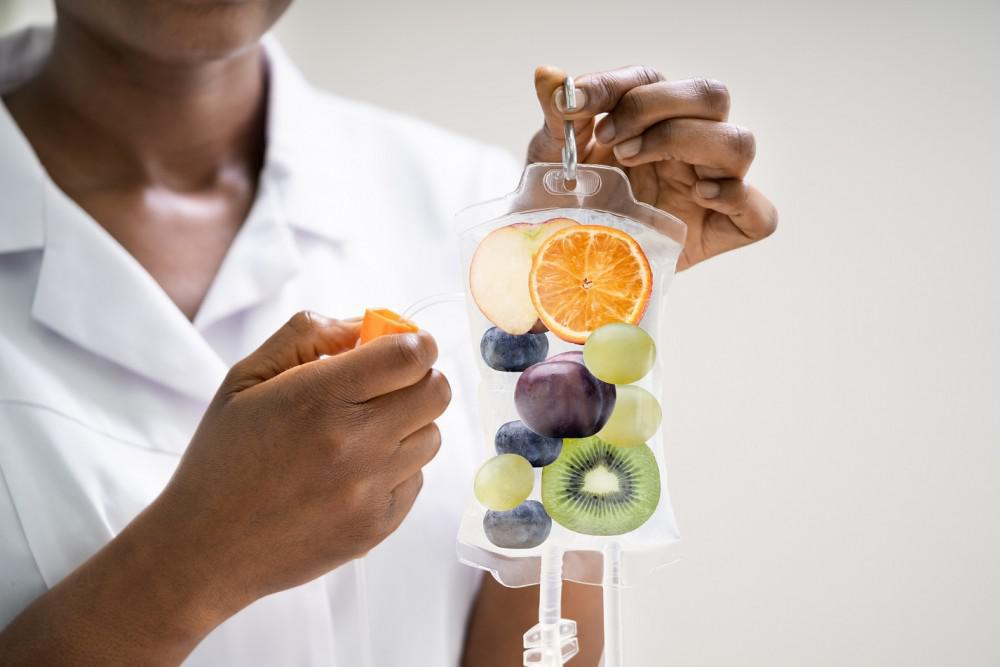
Everything a person’s body need to operate cannot be produced by them. To sustain good health, humans must take the six basic elements through their food.
A person’s growth, health, and ability to reproduce depend on essential nutrients. Both macronutrients and micronutrients make up this list of necessary nutrients.
Micronutrients are substances that a human needs in very minute amounts. Vitamins and minerals make up micronutrients. Even though the body only requires a tiny number of these, a shortage can lead to poor health.
An individual needs greater amounts of nutrients called macronutrients. Protein, carbs, fats, and water are all macronutrients.
VITAMINS
Micronutrients called vitamins have several health advantages, such as:
Increasing immunological function
Helping to postpone or prevent certain diseases, such as prostate cancer
Strengthening the bones and teeth
Helping the body absorb calcium
Keeping skin healthy
Aiding the body’s protein and carb metabolization
Promoting wholesome blood
Helping the nerve system and the brain to work
Usually, a person may acquire all the vitamins they require from food if they consume a diet high in fruits, vegetables, and lean meats. To prevent or lessen a deficit, people who consume fewer fruits and vegetables and those with digestive issues may need to take a vitamin supplement.
MINERALS
The second category of micronutrients is minerals. Major and trace minerals are divided into two categories. For optimum health, the body needs a balance of minerals from both categories.
Primary minerals include:
magnesium, calcium, phosphorus, sulfur, sodium.
The body benefits from major minerals in the following ways:
Water levels are balanced.
Preserve wholesome nails, hair, and skin
Bolster bone health
What are trace minerals?
iron, selenium, zinc, manganese, chromium, copper
Trace Mineral benefits:
Building up the bones
Keeping dental decay at bay
Helping the blood clot
Aiding to transport oxygen
Improving immunological function
Promoting normal blood pressure
By consuming the following items, one may make sure they get adequate minerals in their diet.
Red meat (limit their use and choose lean cuts)
Seafood
Table salt iodized (less than 2,300 milligrams a day trusted Source)
Milk and dairy products in general
Seeds and Nuts
Veggies
PROTEIN
Every cell in the body needs protein as a macronutrient to operate correctly.
Many different processes are carried out by proteins Trusted Source, including:
Guaranteeing the development of the bones, hair, skin, and muscles
Creating hormones, antibodies, and other vital compounds
Providing cells and tissues with fuel as necessary
Proteins can be consumed by a person through their diet. Protein-rich foods include the following:
A slice of red meat (limit their use and choose lean cuts)
includes chicken and turkey, fowl
Seafood and other fish
Legumes and beans
Eggs
Dairy ingredients
Soy
Nuts
A few grains, like quinoa
Even though meats and fish often have the largest protein content, vegans and vegetarians may obtain enough protein from a variety of plant-based foods.
FATS
Foods containing a lot of fat are frequently linked to poor health. However, some fats are necessary for a person to maintain maximum health.
The body needs fats for a variety of processes and energy. Consuming healthy fats like monounsaturated and polyunsaturated fats while limiting or avoiding saturated and trans fats is crucial.
Functions that healthy fats support include:
cell expansion
A blood clot
constructing additional cells
lowering the risk of type 2 diabetes and heart disease
muscular activity
control of blood sugar
brain activity
vitamin and mineral absorption
hormone synthesis
immunological response
Healthy fats may be found in a variety of foods, such as:
nuts
fish, such as tuna and salmon
dietary fats
seeds
CARBOHYDRATES
The body needs carbohydrates to function. All of the cells and tissues in the body receive their energy from sugars or carbohydrates.
Carbohydrates come in two varieties: simple and complicated. Simple carbs, such as white bread, pasta, and rice, should be consumed in moderation. However, complex carbohydrates are required by the body to sustain the following:
the defense mechanism
brain activity
system of the nervous
vigor to do our things
digestion process
Foods that have complex carbohydrates include:
quinoa
brow risotto
veggies
Pasta, bread, and other baked items made with whole grains
oatmeal
fruits
barley
People should stay away from too processed meals with extra sugar and bleached, white flour.
WATER
The most crucial nutrient that a human requires is certainly water. Without water, a human can only last a few days. Dehydration can affect physical and mental performance and can induce headaches.
Every cell in the human body, which is mainly water, needs water to operate. Water is beneficial for several things, such as:
eliminating toxins
absorbing shocks
delivering nutrition
constipation prevention
lubrication
hydration
The ideal water to consume is pure, unsweetened water straight from the faucet or in bottled form. If you don’t like the flavor of plain water, squeeze some lemon or other citrus fruit in.
A person can also consume fruits that are high in water content to gain more water
For optimal health, a person must ingest all six categories of vital nutrients. These nutrients promote several essential processes, including development, immunity, the central nervous system, and disease prevention.
A person will typically acquire the nutrients they need if they consume a healthy, balanced diet that contains lean meats, vegetables, fruits, complex carbs, and water






